The importance of a good customers service: case study with Lufthansa
There is nothing more frustrating in life than facing a stubborn careless customer service. If you are yourself taking care of customer service, bear in mind the following rules, they might save or even improve your image.
We have all experienced this. Automatic hotlines never leading to answers, customer services ignoring us, expensive hotlines forcing you to pay to complain, emails never receiving any answer, people sending you from a department to another constantly asking you to repeat your story... bureaucracy and administration are as necessary as there are harmful for your company's image.
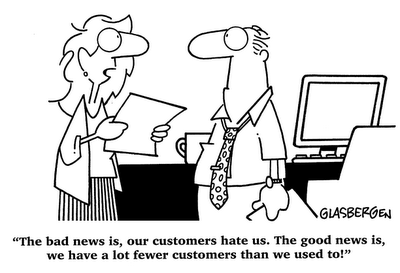
Recently, I have experienced what might have been the worst customer service experience I ever had.
In this article, I will study this specific case and try to highlight what would have been the correct behavior, how this company could have saved a customer without necessarily spending money.
Lufthansa and the inexistent customer service
(Want to skip the detail of my customer service experience? Click here!)
Early September 2012, I fly Lufthansa with my friend. We booked tickets way earlier and we are now ready to fly. Problem is: Lufthansa's staff is on strike. As I am French, I can hardly blame Germans for being on strike: in my country, this is almost a national sport!
My flight is changed to another airline and confirmed. All good.
We fly with my friend, but starting then, nothing goes right: we can't sit together, our flight gets late, we miss the next flight, our luggage is lost, we are sent for three hours from one counter to another, then we are asked to pay our Metro tickets by ourselves to reach a train station that might help us reaching our destination... hell on earth.
A few days later, I prepare a long, polite, detailed and well organized email to describe my exact situation to Lufthansa's customer service, convinced that I will get a quick and efficient answer.
After a few minutes, I receive an auto-reply:
Dear Customer,
Thank you for your email.
We will contact you with an answer to your query as soon as possible. In the meantime, your patience is highly appreciated.
Thank you for choosing Lufthansa and we look forward to serving you online and in flight.
Lufthansa Customer Service & Support Center
Great! I will receive a quick answer.
A week later, I still have nothing. I send another email, copying the original message and asking if my case is being handled. Same automatic answer.
Another week passes. I check online and find that there are several "customer service" lines for Lufthansa. I decide to try calling. This time someone answers me! And the answer is clear and precise: please send us an email..................
I send a third email asking if I can expect receiving an answer someday.
Dear Mr. Rio,
Thanks for your email.
As a complaint case, please kindly contact our Customer Relation Center at email XXXXX.
Thank you.
Yours sincerely,
Lufthansa Customer Service & Support Center

Great, I am now redirected to another customer service center, still from Lufthansa. Could they not have redirected me in the first place? Anyway. I repeat the same procedure and re-send my email, precising this is already the third one.
Not even an auto-reply.
I leave this all story aside for a while. After a month, I send a fourth email and a fifth one, one for each customer service line. I also go on Facebook and find that Lufthansa has a page: I leave the same complaint there.
My two emails got absolutely ignored but my Facebook message is almost instantly replied:
Hi Julien, I'm sorry to hear you still haven't received a reply from Customer Relations. I will send them a message, asking them to get back to you as soon as possible.
Great! Finally, something happens!
Well, not really...
45 days after the initial email, I still got no answer and I lose patience. I go back on the Facebook page and check out other people's messages: I AM NOT ALONE!
Hundreds of people in various languages are complaining the same way as I do for similar reasons.
Enough is enough: I decide to take another approach. I create a Facebook page: "Lufthansa's disappointed customers".
I go back on Lufthansa's page and remind them that it has been over 45 days since my original complaint and that I have received no feedback so far. I mention my new page and invite all disappointed customers to join and share their stories.
A minute later, I receive the following message:
Hi Julien, I have contacted Customer Relations. A decision regarding your case has been made today, you will be contacted shortly.
Magic, isn't it? You wait for 45 days and nothing is done, but the day you create a Facebook page for disappointed customers things get better!
Well... not that much actually. My case might have received a decision, but I still haven't received any feedback.
The customer's point of view

As a customer, what do you think about this situation?
You paid for a service. You received a much lower quality of service and went through endless troubles. When you would expect to receive apologies and/or compensation, you are asked to wait.
After sending several emails and request, after waiting for 45 days, you still get no feedback, no-one takes interest in your case. How could it be more frustrating?
The result from the customer's perspective is obvious:
- I will not fly Lufthansa again
- I will spread my message and share my bad experience with people around me
For Lufthansa, this is both a customer loss and bad advertisement.
The golden rules for customer service
Earlier this year, I wrote an article called "How to answer customers emails". If you haven't read it yet, I encourage you to give it a try: in this article I list some of the most important aspects of customers' emails and how to answer them properly.
There is one thing each entrepreneur, manager or customer service staff should keep in mind at all time: regardless the quality of your product or service, if your customer service is not up to customers' expectation, all your work is worth nothing.
Try considering the following situation: you spent some great time in a luxury hotel for a very reasonable price and everything was almost perfect. Only a small detail bothered you and you would simply like to discuss it with the hotel's customer service to find some solution. But the hotel ignores you, never gets back to you and does not even take time to thank you for your comment. Would you not be frustrated? Would this not completely spoil your earlier satisfaction?

Customer service is the last contact between a company and its customer and this is why it has to be perfect.
1. Empathy
I would actually have preferred keeping this point for later, but it is definitely the most important of all. Empathy. Empathy is the absolute solution to all problems you might ever encounter with your customers. Simply put yourself in your customers' shoes: why is this person so frustrated and what can I do to make this person feel better?
If you have to hire someone for your customer service this is the only thing that you absolutely need to check: is this person capable of empathy?
2. Respect
This is another essential point. It might seem obvious, but it is sadly too often forgotten by customer services.
The client is what brings money in the company. The customer is what pays your salary. Regardless his level of anger, his level of rudeness, he is the king. He paid for a service and he is not satisfied. He might be right, he might be wrong, but this matters not in the way you must answer him: with respect. You must be humble at all time and reply anger with calm.
3. Plan ahead
You should be able at all time to plan ahead and expect your customer's need before those appear.
When a customer sends you an email, he should receive right away an automatic answer. This auto-reply should contain basic information such as "Thank you for your message" and "we will reply you within X days".
This is important: the customer should know at the time he sends an email when he can expect an answer.
If you feel like you can't answer him within the timeframe, get back to him BEFORE the deadline has been reached.
"Dear customer, we took your message into consideration. Unfortunately, we are currently unable to reply your request but will give you an answer within X days. We apology for...."
That way, the customer does not need to send a second email, and this is an absolutely essential point.
Put yourself in the situation where you sent an email to a customer service. If they promised getting back to you with 48 hours and you still have no answer after 3 days, you are frustrated. Now, if before the end of those 48 hours a representative gets back to you explaining that the answer will be delayed but that they did not forget you, you have no reason to worry about being ignored.
Whenever you can't keep up to your promise, get back to the customer BEFORE it is too late and inform him. You should always be able to get back to him before he needs to remind you of your words.
4. Be human
You certainly have rules and procedures to follow. For each situation your customer might face you probably have a "prepared answer".
For example: "If you want to return this product, you will need to provide us with the ticket, the proof XYZ, the certificate XKY, etc...". Be human, you are not a machine. There are situations in which following the rules word by word is just impossible. Answering a human need with an administrative response is not efficient.
Of course, you have to follow those rules, but try to be flexible, understanding and to reply in a human way.
Earlier this year I faced this situation as a customer: living in Hong Kong, I have a French international insurance. My insurance asked me to get my doctor to fill in a medical certificate written in French. It took me forever to try to get my interlocutor to understand that Chinese doctors do not speak or read French. I took an international insurance, it would have seemed obvious that I would live abroad and require international documents. But sometimes, customer services are stubborn and refuse to think: they stupidly follow the procedure without taking the human aspect into account.
5. No excuse
You are late in your reply because of a strike? Because your colleague was sick? Because of a computer bug?
Customers don't care.
If you are late, if you can't give a straight answer, if your service lost the customer's file... don't give him excuses. Don't start explaining the reasons why it happened and how it isn't your fault. Go straight to what matters to him: the solution.
"We are sorry we had to delay our reply. We are now checking your case with our team and will get back to you within X days with the proper answer. Once again, we apology for our late reply and thank you for your patience and understanding".
That is all. As a customer, you want fact. You want to know when and how you will get what you want. The rest does not matter to you.
6. Social Media
A few years back, no company would ever have considered opening their customer service to everyone. Today, things have changed and numerous companies try to adapt their system to more transparency.
Social Media is scary for most companies as it implies partially losing control: what happens between a customer and the company through email is pretty much confidential. What happens on Facebook or other Social Platforms is open to anyone and therefore represents a real risk of totally losing control. On the other hand, it shows a real desire from the company to be transparent.
How to deal with Social Media? Well, there is no golden rule here.
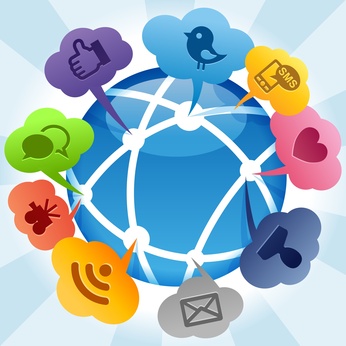
Some companies restrain the type of comments left on their page and "moderate" those by deleting anything negative. This might be the wrong approach: either you accept to open your company to critics, or you don't. This behavior shows a motivation to be transparent but the desire to keep control: this is the wrong message to give people.
Some others will let customers post anything (as long as it follows some basic ethic rules), positive as well as negative, and simply answer the feedback as they come. This might be the best way to use Social Media. However, you have better be pretty confident with your quality of service: if all the messages you receive on the platform are negative, this exercise of transparency with soon become a huge problem for you to handle.
A thing to keep in mind is that Social Media and customer service are two different things. In the end, you must reply your customers individually with personal answers and potentially private details. The Social Platform should only "guide" the customer in the proper direction and advise him to save some time, but only the customer service will be able to provide the correct answer.
Make sure your customer service is at least as efficient as your Social Media team: it would be very frustrating for your customer to get instant reply on Facebook and to wait two months for a customer service's reply!
7. Hotlines
Hotlines can be extremely painful for customers.
First, if you offer a hotline for your customers to give feedback or complain, make it free: companies charging people who complain have no idea about the very concept of customer service.
Second, you are entitled to use those "automatic hotline" systems directing the customer to the right service. But if you do so, use EMPATHY! These systems are conceived to save the customer's time and make the problem solving process more efficient. Unfortunately, most of the time, those system are extremely inefficient and get the customer more frustrated than he was before calling! Test your own system as if you were a customer and update it from time to time to make sure it is always working its best in the customers' interest.
Third, hotlines are useless if their purpose is to redirect people to the email solution. If you provide customer with a solution, make sure this solution is going to bring answers on its own, otherwise you are wasting your time as well as your customer's one.
Fourth, you are entitled to outsource your hotline or to host it in a different country from yours. However, make sure that the person your customer will have on phone speaks clearly and fluently your country's language and that this person has a very clear understanding of what your company does and how it deals with problems. Too often hotlines are simply unable to help the customers because they simply follow guidelines without trying to understand what the customer really needs.
For hotlines, there is a very simple rule to follow: test it yourself once in a while. Create yourself a problem a customer might encounter and call your hotline. If you get in any way frustrated, then something is wrong and you must restructure it.
Lufthansa's customer service: the pros and cons
My personal experience with Lufthansa has been disastrous. But things could have easily been different.
Let's go back to the case study and try to see how things could have been handled better.

1. A bad experience
The first point to note is that I paid for a service I never had and that I instead experienced successive problems.
What, as a customer, I would have expected would have been, first, apologies for the situation, then, some kind of compensation.
But before all, what all customers are looking for is respect.
2. A first contact with the customer service
After I sent my first email, I immediately received an auto-reply. This is a good point.
However, the auto-reply wasn't bringing much information: "we will contact you as soon as possible". When I read this message, I did not expect that 45 days later I would still be waiting!
"As soon as possible" means nothing: for some people it might be 24 hours, for others "one day when I have time". Be precise! "We will contact you within a week" would have been a better answer.
3. No answer
After a week, anyone would expect something to happen. This is the second negative point: Lufthansa did not get back to me.
The proper handling of the case would have been a second (personalized or automatic) answer: "Dear customers, We apology for the delay of our answer. Unfortunately, we are currently unable to reply your request. We are trying our best and will get back to you within 7 days".
This type of answer is already quite frustrating for the customer, but, at least, this one knows that he hasn't been forgotten. With such answer, I would have waited longer without getting impatient.
4. Hotline
Lufthansa's customer service hotline hasn't been able to give me any other answer than "please use our email service". Then why having a hotline?
5. Too much delay
Whatever the reason, a month is the maximum a customer can accept before receiving an answer. If Lufthansa isn't able to reply customers within 30 days, then they have a serious customer service problem and it is time to solve the problem by hiring and restructuring their service.
6. From A to B
Lufthansa sent me from a customer service to another, once by phone, once by email, without ever solving my problem.
If you are not the right service to contact (that can happen), don't tell your customer to ask somewhere else: transfer his request yourself!
Lufthansa should have redirected my request to another service by itself if it was wrongly addressed.
7. The Social Media
Here we have a very positive and a very negative point.
Lufthansa's Social Media service is great. They accept all comments, both positive and negative, try to answer everyone within a reasonable timeframe, are always polite and try their best to be useful.
Unfortunately, Lufthansa's Social Media team is much more efficient than their customer service colleagues and they have absolutely no power of action.
The Social Media team keeps promising that "the request has been successfully sent to our customer service department", but nothing happens after this. Another great promise with no action behind, what a shame!
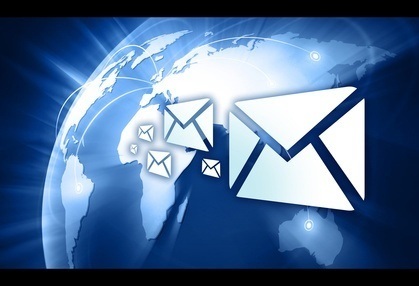
Customer service is all about your image.
You might follow step by step all my guidelines and still face difficult situations: that is normal. Customer service is more a social science than a business. It requires you to really understand people's mind and needs and not everyone is able to do so.
But if you follow all the steps previously stated, you shall at least be able to limit the frustration of your customers.
Remember that a happy customer might share his experience with one person but a disappointed one will share it with 8 others. Bad word of mouth can kill companies. Take very good care of your customer service.
Customer service is all about changing feelings, not facts. Whatever bad experience your customer went through is past already: what you can, what you must change is his perception and feeling about your company. You must convince your disappointed customer that they can trust you again. Changing feelings involves dedication, empathy and respect – it doesn’t require money. Most people will be satisfied with a fast reply, apologies and – eventually – a discount, a small gift or some advantage. Make your customer feel important and involved: that costs nothing and that creates loyalty. If you would like to develop your strategy and go further in terms of customers’ loyalty, I invite you to read my article “Mismanagement of customers loyalty”.
To conclude this article, I would like to invite you to read about Dave Carroll's story. In 2009, Dave Carroll's expensive guitar was broken by United Airlines. The company ignored his complains and requests. As a result, Dave decided to write a simple song about his story "United Breaks Guitars". Within 4 days airing on Youtube, the stock price value of United Airlines dropped by 10%! This is a story all customer services should keep in mind: you can't disrespect your customers and expect no consequence. Sooner or later, misbehavior has consequences. To read Dave Carroll's full story, have a look here: United Breaks Guitars.
Last update: 2024-04-23 Tags: bad customer service good customer service customer service lufthansa's customer service dave carroll united breaks guitars lufthansa





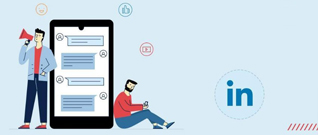




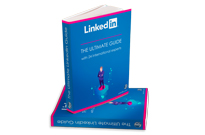
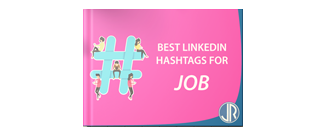

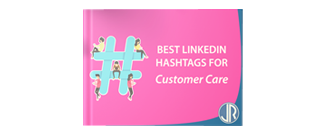

 Français
Français English
English